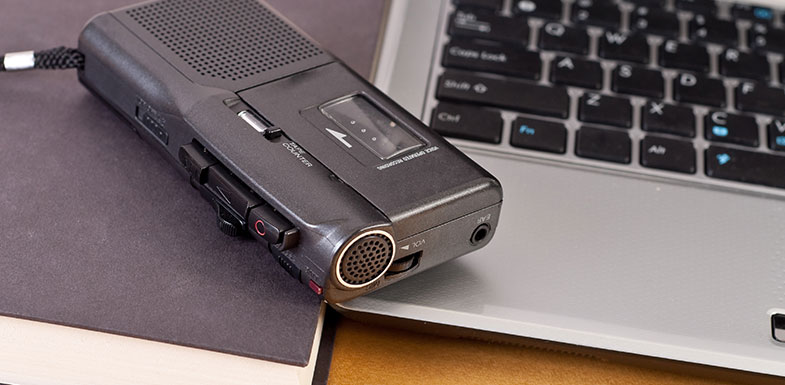
There can be many reasons why a marriage reaches the point where one or both spouses determines that divorce is the only option left. Whatever the reasons that have led to this difficult decision, you may be tempted to try and gain the upper hand in Alabama divorce proceedings by recording conversations between you and your spouse or between your spouse and another person. While movies and television shows may make it seem that making such recordings is an excellent way of proving infidelity or some other action, there can be consequences for making such recordings and they rarely prove useful in court. To understand more about the legality of recording your spouse, which is covered in the Code of Alabama Title 13A Article 2, there are a couple of things you should consider.
One Party States vs. Two Party States
One important distinction that impacts privacy laws and a person’s ability to secretly record someone without their knowledge is whether or not the recording takes place in a one party state or a two party state. Alabama privacy laws make it a one party state, which means that only one person that is part of the secret recording must consent to being recorded. As such, if you are part of the conversation and have decided to record it, you have given your consent to be recorded and have met this requirement in Alabama. This does not allow you to record a conversation between two other people, though. In other words, in Alabama you would not be permitted to record a conversation between your spouse and the person you may think they are having an affair with if that is your reason for wanting to make a recording.
However, some other states are two party states when it comes to recording. This means that both people in a recorded conversation must consent to the conversation being recorded. This can lead to problems if you are recording a conversation with a spouse that may potentially be in another state. While Alabama law recognizes the need for only one person to consent to the recording, other two party states may not recognize that being in Alabama negates the need for both parties to consent. In such a scenario, you could be liable for criminal and civil charges in whichever state the other party to the recording is located. Situations like these may also arise when you suspect your spouse of having an affair while on a business trip or vacation and decide to do some personal private investigating that includes recording various conversations.
Alabama Surveillance
Most of the same considerations also apply to surveillance measures. Surveillance is more about recording someone’s actions than it is about recording conversations. As long as you consent to the surveillance, then you have likely satisfied the Alabama one party consent requirement. However, you must be careful not to cross the line into criminal surveillance which involves some form of trespass into an area where a person has a reasonable expectation of privacy. In other words, if you suspect your spouse of having an affair and are recording their activities in a public park, there is less chance of committing a crime than if you were to follow them to the interior of another person’s private residence or a similar private place. It is extremely important to ensure the legality of your actions when engaging in surveillance, and this may again be another situation where it is best to allow your Alabama divorce lawyer collect evidence in other ways. While you might be able to legally engage in certain activities in preparing for an Alabama divorce, that does not necessarily mean you should.
General Alabama Recording Advice
There are very few situations where the risks associated with recording another person on the phone or in person without their knowledge outweigh the potential benefits, and you should consult with an Alabama divorce attorney before making such decisions. Not only is most of the information obtained by these actions not admissible in court, Alabama allows no-fault divorce where you do not have to prove anything specific about your spouse in order to receive a divorce. Often, the truth is that any information you may obtain will be of little use in helping you receive a more beneficial judgment and could in fact cost you a great deal more than it will help you gain. It is sometimes best to accept that a no-fault divorce can save you time and help you avoid potential legal consequences, too.
Legal Assistance with an Alabama Divorce
There are a variety of ways that an experiencedBirmingham divorce lawyer can obtain evidence and information pertinent to your divorce. To help avoid potential civil and criminal charges in Alabama or another state, talk to an attorney about your divorce concerns and enlist their assistance to navigate the often confusing Alabama divorce process. Contact the experienced dedicated Birmingham divorce lawyer at Alabama Divorce & Family Lawyers, LLC to schedule a consultation about the unique circumstances surrounding your Alabama divorce and ensure that your rights are protected throughout the Alabama divorce process.
